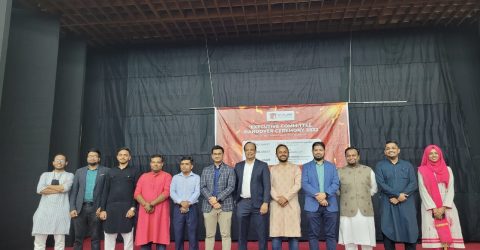
Sharman Stone
After her son’s murder, Miriam finally fled her village in Myanmar’s conflict-ravaged Rakhine State. Even as Miriam escaped, the few precious belongings she could grab were snatched from her, and she recalls how she was forced to drink water from bamboo to survive the long trek to neighbouring Bangladesh.
Of the nearly 700,000 Rohingya refugees that have crossed into Bangladesh since August 2017, well over half are women and girls, and many, like Miriam, have reported grave human rights abuses.
The Rohingya refugee crisis is extreme, yet violence against women and girls occurs everywhere, in both developed and developing nations. And for refugees like Miriam, the risks aren’t over when they reach relative safety. Forced to live in makeshift camps filled with uprooted, often traumatized people, exposure and the threat of lawlessness increase the risk of violence. In desperate situations like these, where people often have just the clothes on their backs, forced marriage, child marriage, trafficking, exploitation and cases of women selling sex to survive, typically rise. This is why, in any crisis, upholding the safety and dignity of women and girls who have survived violence, or are at risk of suffering it, must be front and centre in relief efforts.
As the monsoon rains set in over the sprawling Rohingya refugee camps in Cox’s Bazar, Bangladesh, Miriam has finally found some security and respite in one of the special women-only spaces set up by the United Nations Population Fund (UNFPA), with support from the Australian government. For women who have lost everything – their homes, families, livelihoods and not least their dignity – there, they know that they are safe, that they have support and that they have each other.
Now, with the help of a trained counsellor, Miriam says she’s working through the grief at the loss of her son and feels comfortable enough in the space to start putting plans together for her surviving family.
“I have peace when I come here,” she says. “I get mental and physical support, and when I needed to go to the hospital, they referred me and came with me.”
At the 19 Women-Friendly Spaces UNFPA runs for Rohingya women and girls in Bangladesh, specialists offer healthcare and counselling, as well as professional case management for survivors of violence. Hundreds of thousands of women and girls have been reached these through safe spaces, including over 165,000 with support related to gender-based violence. On top of that, UNFPA has provided vital sexual and reproductive health services to over 325,000 Rohingya women and girls, deployed 60 midwives to ensure safe births, and set up 19 reproductive health clinics.
Violence against women surge during disaster times Sharman Stone
After her son’s murder, Miriam finally fled her village in Myanmar’s conflict-ravaged Rakhine State. Even as Miriam escaped, the few precious belongings she could grab were snatched from her, and she recalls how she was forced to drink water from bamboo to survive the long trek to neighbouring Bangladesh.
Of the nearly 700,000 Rohingya refugees that have crossed into Bangladesh since August 2017, well over half are women and girls, and many, like Miriam, have reported grave human rights abuses.
The Rohingya refugee crisis is extreme, yet violence against women and girls occurs everywhere, in both developed and developing nations. And for refugees like Miriam, the risks aren’t over when they reach relative safety. Forced to live in makeshift camps filled with uprooted, often traumatized people, exposure and the threat of lawlessness increase the risk of violence. In desperate situations like these, where people often have just the clothes on their backs, forced marriage, child marriage, trafficking, exploitation and cases of women selling sex to survive, typically rise. This is why, in any crisis, upholding the safety and dignity of women and girls who have survived violence, or are at risk of suffering it, must be front and centre in relief efforts.
As the monsoon rains set in over the sprawling Rohingya refugee camps in Cox’s Bazar, Bangladesh, Miriam has finally found some security and respite in one of the special women-only spaces set up by the United Nations Population Fund (UNFPA), with support from the Australian government. For women who have lost everything – their homes, families, livelihoods and not least their dignity – there, they know that they are safe, that they have support and that they have each other.
Now, with the help of a trained counsellor, Miriam says she’s working through the grief at the loss of her son and feels comfortable enough in the space to start putting plans together for her surviving family.
“I have peace when I come here,” she says. “I get mental and physical support, and when I needed to go to the hospital, they referred me and came with me.”
At the 19 Women-Friendly Spaces UNFPA runs for Rohingya women and girls in Bangladesh, specialists offer healthcare and counselling, as well as professional case management for survivors of violence. Hundreds of thousands of women and girls have been reached these through safe spaces, including over 165,000 with support related to gender-based violence. On top of that, UNFPA has provided vital sexual and reproductive health services to over 325,000 Rohingya women and girls, deployed 60 midwives to ensure safe births, and set up 19 reproductive health clinics.




